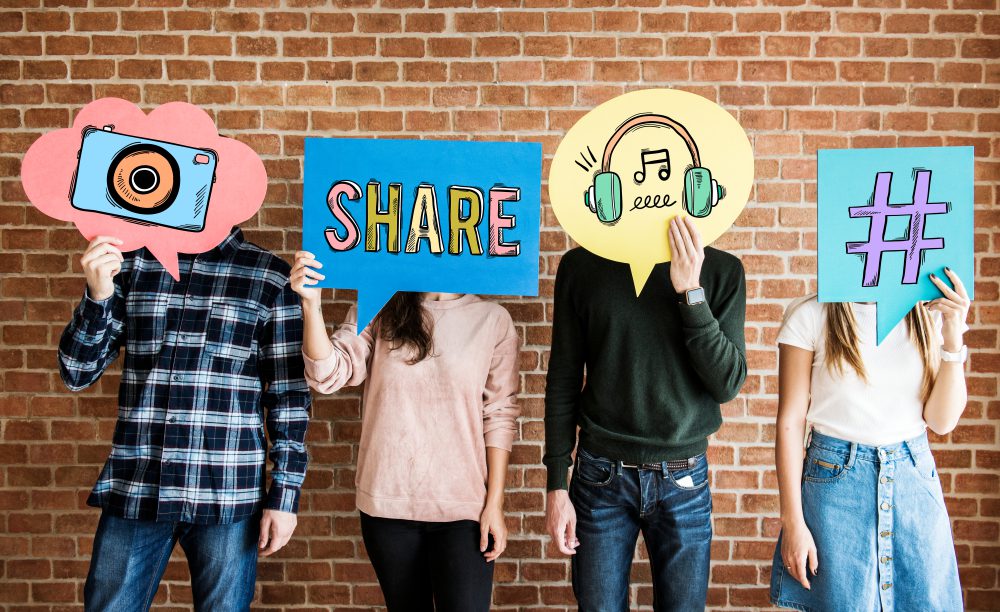Introduction
Social media has assimilated into teenagers’ lives in the current digital era. These platforms help people connect, express themselves, and share information, but they also pose serious problems for adolescent mental health. This blog aims to analyze the complex interactions between social media and adolescent mental health. We will talk about the positive and negative effects of it, touching on the former, like connection and support, and the latter, like cyberbullying and excessive comparison. Additionally, we will offer insightful advice on how to successfully navigate this digital environment while maintaining mental health and balance to both parents and teenagers.
The Positive Side: Connection and Support
- Social Connection: Teenagers can connect with friends and family via social media, overcoming distances and upholding bonds. It gives teenagers a place to connect with others, share stories, and find a sense of community.
- Supportive Communities: Teenagers who are dealing with comparable difficulties, such as mental health issues or LGBTQ+ concerns, can find support, understanding, and resources in the communities and groups that are hosted by many social media platforms.
- Information and Awareness: Social media, which provides resources, coping mechanisms, and recovery stories, can be a useful source of knowledge about mental health issues. It encourages open conversations, which lessens the stigma associated with mental health.

The Dark Side: Negative Impact on Teenagers’ Mental Health
- Cyberbullying: Teenagers may be harassed, humiliated, or threatened online because of the anonymity of social media. Cyberbullying can have a devastating psychological impact, leading to feelings of anxiety, depression, and even suicidal thoughts.
- Social Comparison: Teenagers frequently contrast their own experiences with the carefully curated, idealized images and lifestyles presented on social media. This constant comparison can result in low self-esteem, inadequacy feelings, and a warped perception of reality.
- Fear of Missing Out (FOMO): Teenagers who see other people’s exciting experiences online may develop a fear of missing out, which can result in anxiety and a sense of exclusion if they are unable to partake in every social trend or event.
- Sleep Disruption: Utilizing social media excessively, especially right before bed, can interfere with sleep cycles, resulting in sleep deprivation and aggravating mental health conditions like anxiety and depression.
- Addiction: Social media’s compulsive nature, fueled by notifications, likes, and comments, can result in excessive screen time, fewer in-person interactions, and more isolation, all of which have a negative impact on mental health.
Navigating the Digital Landscape: Tips for Teens
- Mindful Use: Be careful how much time you spend on social media. Limit your screen time and schedule regular breaks to do things offline.
- Authenticity: Keep in mind that online, people frequently present an idealized version of their lives. Be authentic and stay away from the comparison trap.
- Cyberbullying Awareness: Don’t be afraid to report cyberbullying if you experience it or see it happen to someone else. Consult a counselor or a trusted adult for support.
- FOMO Perspective: Recognize that missing out on one occasion or fad does not determine your value or level of happiness. Experiences gained in person are more valuable than those gained online.
- Healthy Sleep Habits: Create a bedtime routine without the use of technology to promote better sleep and mental health.
- Online Support: Find supportive and upbeat online communities that share your interests or address your problems. Meeting others who share your interests can be inspiring and educational.
- Talk Openly: If you have any online experiences or worries, talk to a responsible adult like a parent, guardian, or school counselor. In order to address any potential issues, open communication is crucial.
Parental Guidance: How Parents Can Support Their Teens
- Active Engagement: Take an interest in what your adolescent is doing online. Talk to them about their preferred platforms and your own online experiences.
- Set Boundaries: Set up clear rules and regulations for using social media and screens. Encourage balanced usage, including time spent offline.
- Model Healthy Habits: Set a good instance. Limit your screen time and be aware of your own online interactions to show good digital behavior.

- Open Communication: Create a space where your adolescent feels at ease talking about their online adventures and any difficulties they may face.
- Educate About Cyberbullying: Teach your teen how to react if they experience or witness cyberbullying and the warning signs of it.
- Promote Real-Life Connections: Encourage hobbies, pastimes, and other pursuits that foster social and emotional growth away from the digital sphere.
- Monitor Appropriately: Consider using parental control software to keep an eye on your teen’s online activity and ensure their safety while maintaining respect for privacy.
Conclusion
Social media undoubtedly has both positive and negative effects on young people’s mental health. On the one hand, it gives people a place to connect, express themselves, and share knowledge, which can be good for their development. On the other hand, it poses significant risks like addiction, social comparison, and cyberbullying, all of which can have a negative impact on their mental health.
Recognizing how important social media is to teenagers’ lives is important, but so is exercising caution. By encouraging open communication, setting clear limits for screen time and online interactions, and encouraging healthy digital habits, parents can play a crucial role. Encouraging teens to balance their online engagement with real-life experiences is essential, as it helps them develop resilience and maintain a healthier perspective on social media. Finding a balance between the real and virtual worlds is essential in the digital age if social media is to have a positive effect while protecting teenagers’ mental health.


